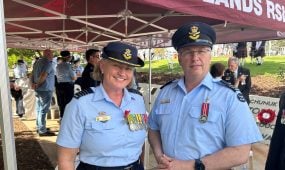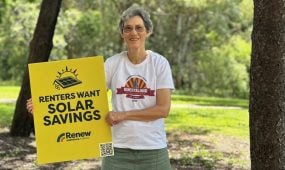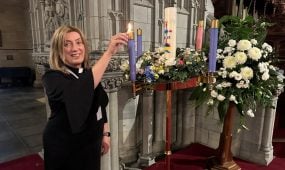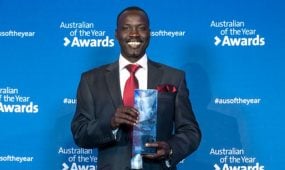Q&A with Dinka teacher, South Sudanese elder and St Paul’s, Ipswich parishioner, Abraham Kiir
Spotlight Q&A
Meet Abraham Kiir and find out about his exciting Dinka language projects, his thoughts on Being Together: Embracing Joy, his favourite scripture and Bible character, what Lent means to him and what he would write on a billboard and why
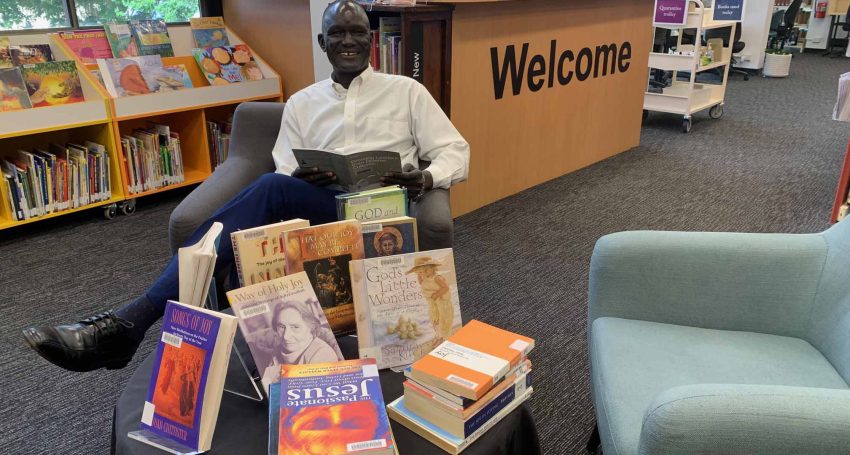
Where do you currently live and where do you worship?
I live in Regents Park and I worship at St Paul’s, Ipswich.
How long have you been involved in the Anglican Church and in what roles?
I became an Anglican when I was at school in the 1980s in my home village of Paliau in (now) South Sudan. Religion was a subject at my school. I first became a Bible and hymn teacher in 1985 when I was in Paliau.
What is your current ACSQ role and how does this role contribute to the Church’s mission?
I continue to serve as a Dinka language and Bible teacher in the South Sudanese and Sudanese Anglican Ministry or SSSAM, which is based at St Paul’s, Ipswich.
What projects and activities are you currently working on?
I am currently working on the paperwork side of setting up the Institute of Thuongjang and Development Centre, which is going to be a Dinka language centre. We really need a permanent place for our teaching centre, such as a building or large room, and we are keen to hear from anglican focus readers if they have any location suggestions.
While we can be with God in silence, in order to teach the faith to our people we need to teach our language, Dinka. So we are exploring how to design and manufacture the first Dinka keyboard. At present the only way we can write the Dinka language is to use a software program called KeyMan. The keyboard will revolutionise how we develop and teach the language.
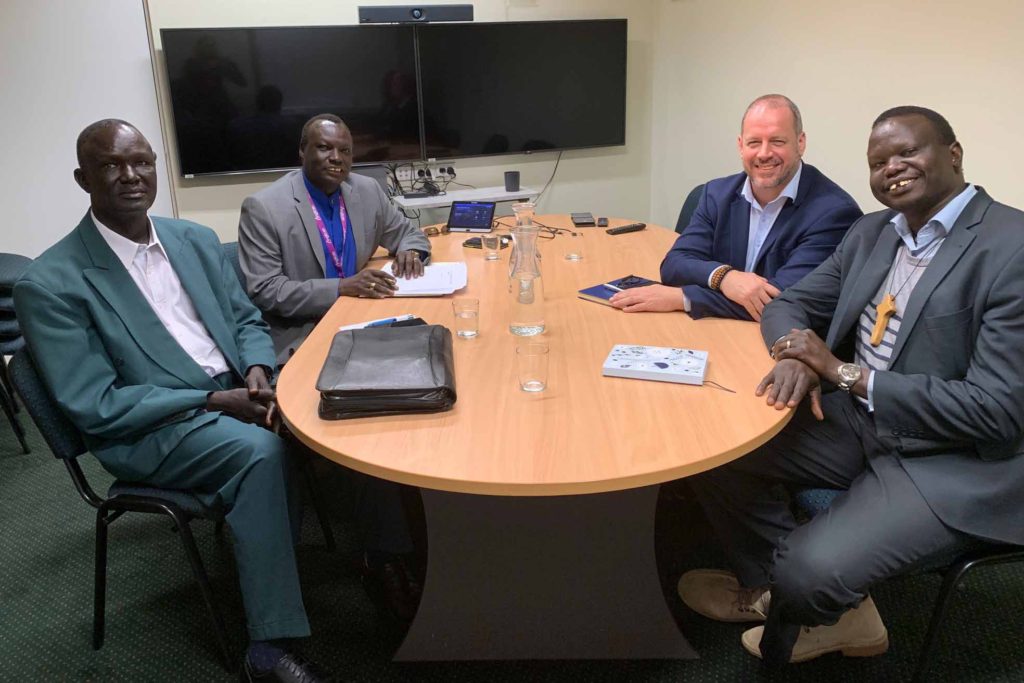
(Clockwise from front left) South Sudanese elder and Dinka language teacher Abraham Kiir; Resource Church Specialist Bishop Daniel Abot; Executive Director of the Parishes and Other Mission Agencies Commission Stephen Harrison; and, The Rev’d Peter Mayen chatting about Dinka language development and South Sudanese ministry at St Martin’s House in June 2021
What have been some of your highlights of your time as a Dinka and Bible teacher and elder?
A highlight for me is seeing my former student Daniel Abot become a bishop and an Ethnic Congregations specialist for our Diocese. We meet in 1987 in Ethiopia where I taught Daniel as a Bible teacher.
Another highlight was when I completed the four-year Education for Ministry (EfM) course at St Luke’s, Ekibin in 2007.
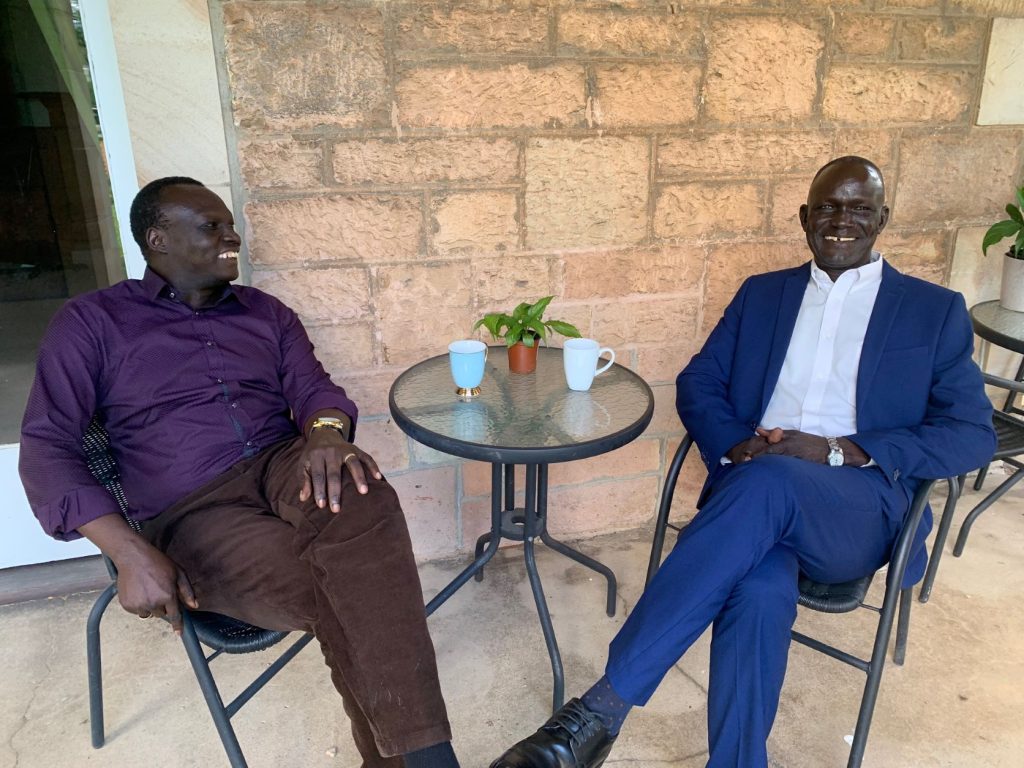
“A highlight for me is seeing my former student Daniel Abot become a bishop and an Ethnic Congregations specialist for our Diocese. We meet in 1987 in Ethiopia where I taught Daniel as a Bible teacher” (L-R: Bishop Daniel Abot with South Sudanese elder Abraham Kiir at St Francis College on 17 March 2022)
2022’s Diocesan theme is ‘Being Together: Embracing Joy’. What are some practical ways that we can celebrate the way differences help to make us whole and the importance of diversity in our unity?
By bringing people together in prayer. Those who can’t come can still be prayed for.
What is your favourite scripture and why?
“Faith shows the reality of what we hope for; it is the evidence of things we cannot see…By faith we understand that the entire universe was formed at God’s command, that what we now see did not come from anything that can be seen.” (Hebrews 11.1&3)
This is my favourite scripture because I know that Jesus loved me before I knew him.
What is your favourite person in the Bible and why?
I like Abraham because his faith was strong and he was a friend to God.
What does the Lenten season mean to you?
The way Jesus endured his suffering shows us how to persevere when we are facing difficulties.
If you could have a billboard with any text on it, what would it say and why?
“Education is very important” because we need to learn what we don’t know.
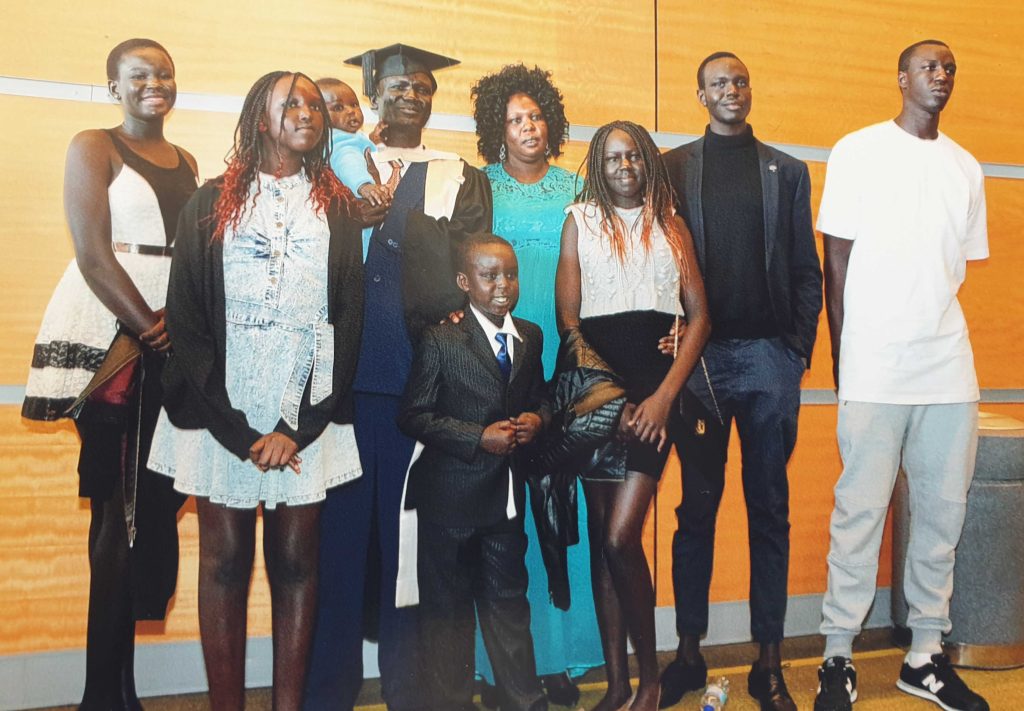
South Sudanese elder Abraham Kiir at his 2015 university graduation with his wife Duruka Duom Mading and their seven children
What is the kindest gesture you have ever received or witnessed?
When I saw Army people helping community members outside their homes after the recent flood.
What do you do in your free time to recharge and relax?
I like to read books on philosophy and the Bible.
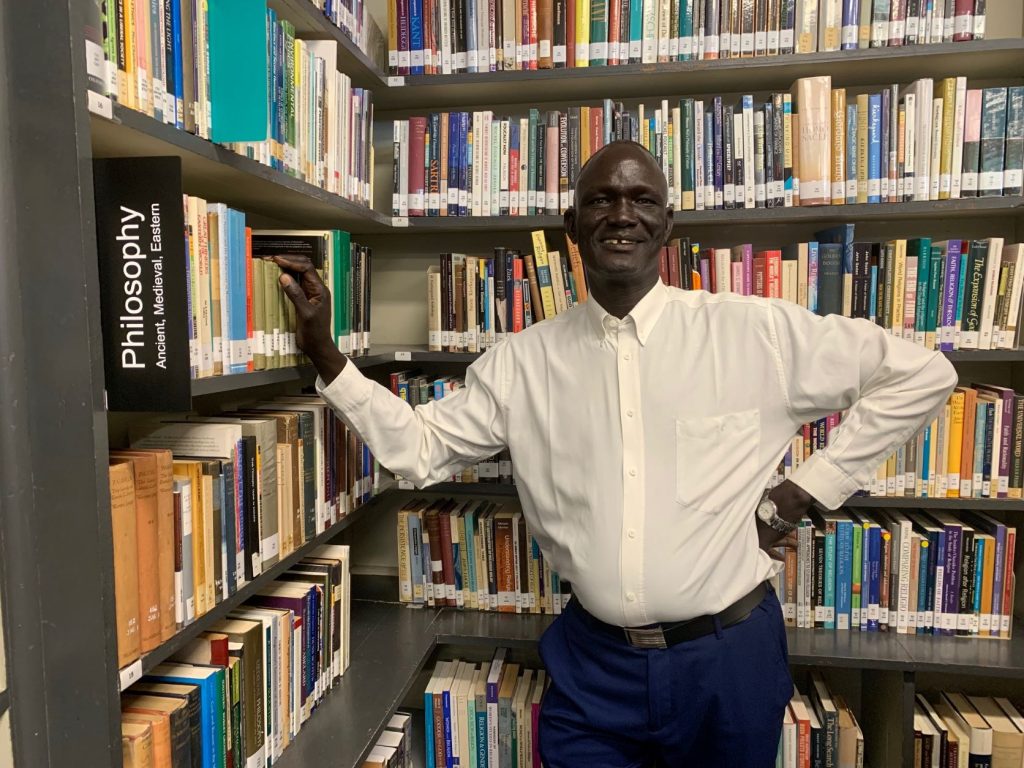
South Sudanese elder Abraham Kiir enjoys reading the Bible and books about philosophy (he is pictured at the Roscoe library on 17 March 2022)
What book have you recommended or given away the most and why?
The Prayer Book because it helps ground people in prayer.
What hobbies do you enjoy?
I play a kind of a guitar called a rababa. I play music from home on it.
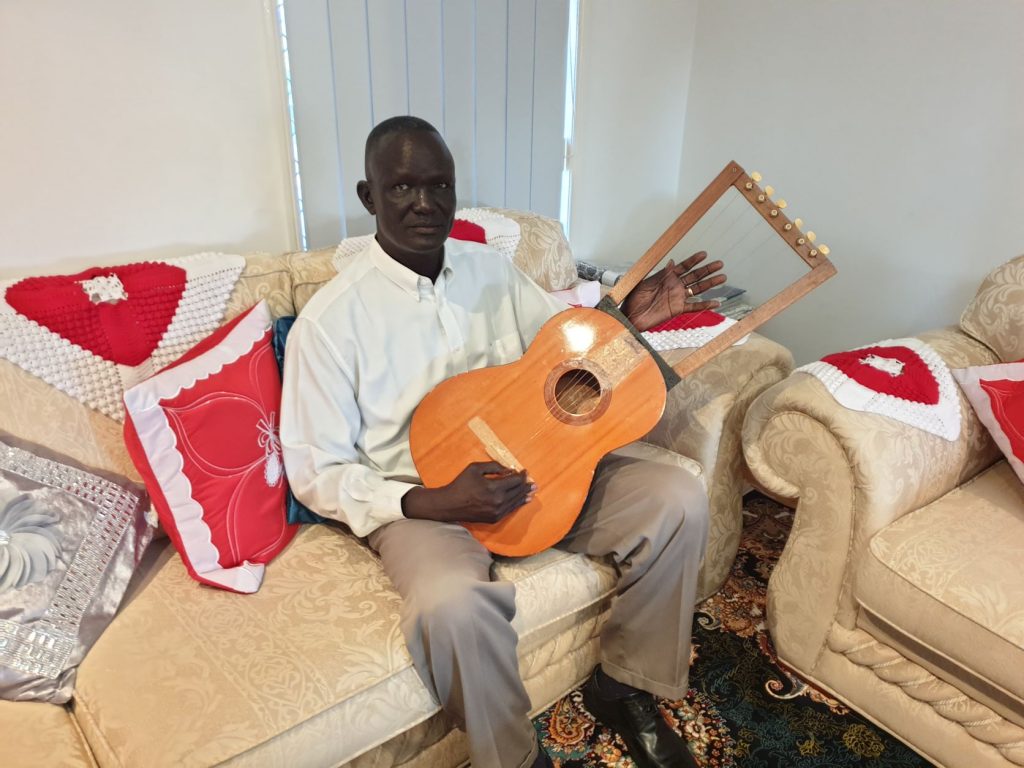
“I play a kind of a guitar called a rababa. I play music from home on it (South Sudanese elder Abraham Kiir in March 2022)
What is your favourite colour?
I like green because it reminds me of nature.
What is your favourite animal?
I like the giraffe because it is a peaceful and beautiful.
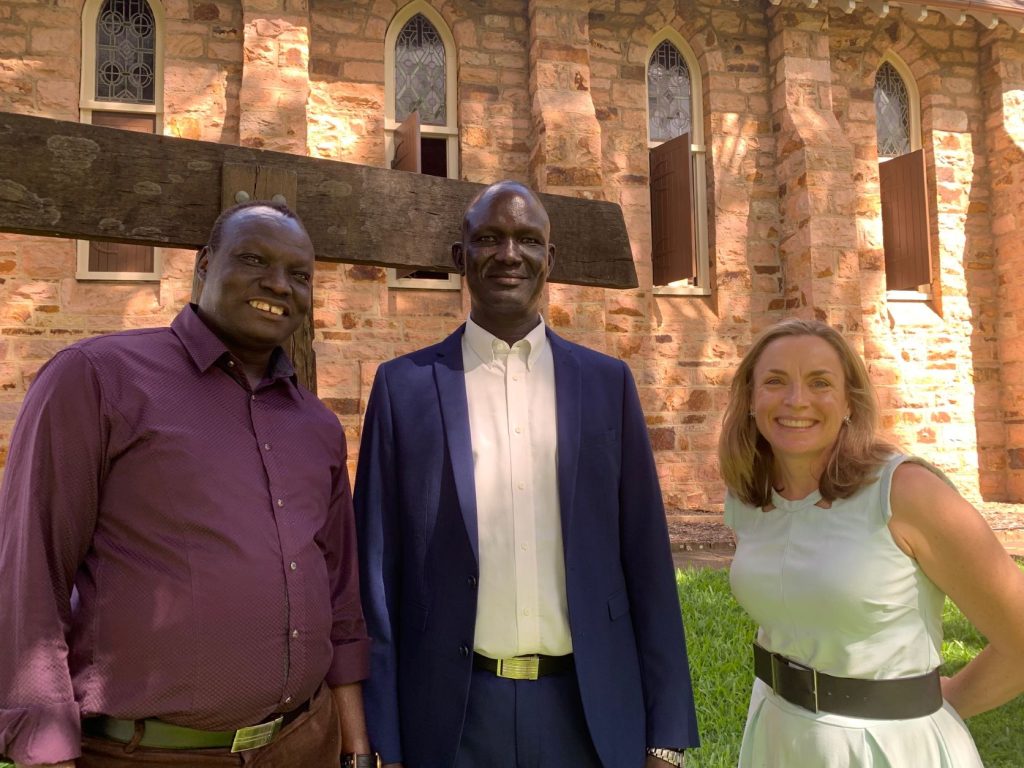
Dinka language teacher Abraham Kiir (centre) met with the Parishes and Other Mission Agencies Commission team members Bishop Daniel Abot and Michelle McDonald to chat about Dinka language teaching developments on 17 March 2022 at St Francis College

